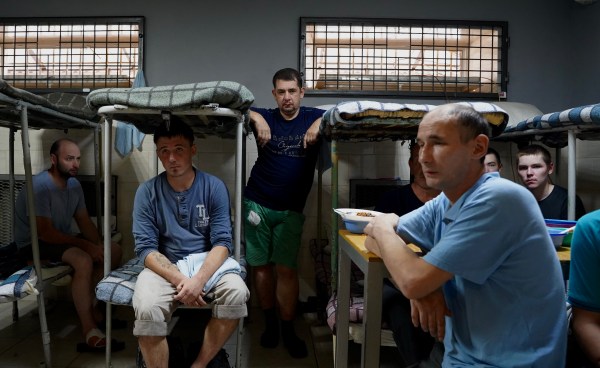Has Kamala Harris flip-flopped on her support for paper ballots in elections? A viral post claims that Harris previously supported paper ballot requirements and implies that the Democratic presidential nominee has changed her mind since the 2020 election.
“Kamala Harris sounded very supportive of using paper ballots in elections before the 2020 election. She even suggested that paper ballots might be the best and most secure option when it comes to elections,” reads a short article linked from the first comment on the post. “However, where does she stand on paper ballots now?”
The post attributes the following quote to Harris: “‘For all that technology has brought us, good and bad, the best and most secure way to conduct elections? Paper ballots,’ - Kamala Harris once said.”
The quote is accurate, but the post lacks important context. A majority of jurisdictions already use paper ballots for federal elections, and there is no evidence that Harris now opposes their use.
The context.
Harris’ comments came during a February 2019 speech at Saint Anselm College’s New Hampshire Institute of Politics, almost one month after the then-senator announced her candidacy for the 2020 Democratic presidential nomination. Answering a question about federal infrastructure spending, Harris noted the prudence of further investment into election infrastructure and discussed a bipartisan election security bill she co-sponsored with Republican Sen. James Lankford. “We have proposed that part of the investment in infrastructure has to be upgrading the infrastructure of states around elections,” Harris said. “Because guess what? As it turns out, for all that technology has brought us—good and bad—the best and most secure way to conduct elections: paper ballots. … Russia can't hack a piece of paper.”
Harris expressed support for paper ballots again a month later, posting on Twitter that it was the “smartest” and “safest” way to protect U.S. elections from malign influence.
In her comments, Harris references the Secure Elections Act. The bill was introduced in March 2018 by Lankford and initially featured seven co-sponsors: three fellow Republicans and four Democrats, including Harris. The bill eventually gained six additional co-sponsors, including Utah Republican Orrin Hatch and California Democrat Dianne Feinstein. Its initial consideration by the Rules Committee was postponed indefinitely in August 2018, and the bill never advanced to a full vote.
Under the bill, the Department of Homeland Security would have been assigned responsibility to share information on election-security threats, incidents, and vulnerabilities within the federal government and would have directed the Election Assistance Commission (EAC) to appoint an advisory panel of independent experts to develop a range of security and audit guidelines for federal elections. The bill would have also directed the EAC to make cybersecurity and modernization grants to states for the implementation of new security guidelines, including the replacement of “electronic voting systems that are not optical scanners that read paper ballots.”
House Democrats introduced legislation with similar paper ballot requirements in 2019. The Securing America’s Federal Elections Act (SAFE Act) passed the House in a 225-184 vote that fell almost entirely along partisan lines, but was not taken up by the Senate, which then had a Republican majority.
There is no evidence that Harris has changed her views on paper ballots, and she actively supports legislation that would require their use. In February 2024, Harris urged Congress to pass the Freedom to Vote Act—first introduced by Democrat Amy Klobuchar in September 2021—which, among other measures, would “require the use of an individual, durable, voter-verifiable paper ballot of the voter’s vote selections,” and “provide the voter with an opportunity to correct any error on the paper ballot before the permanent voter-verifiable paper ballot is preserved.”
The Harris campaign has not returned a request for comment from The Dispatch Fact Check. We will update this piece if we get a response.
Why paper ballots?
Experts on election integrity and cybersecurity generally agree that using paper ballots marked directly by voters is the best way to protect against electoral fraud, mostly because of the vulnerabilities inherent in computer systems. “This is really a strong consensus,” Andrew Appel, a professor of computer science at Princeton University and expert on voting machines and election systems, told The Dispatch Fact Check. “There are people on both sides of the aisle these days who would like to see paper ballots hand marked. It's not, you know, a particularly partisan thing.”
According to Verified Voting, an organization that promotes best practices for the use of technology in voting, approximately 69.8 percent of Americans live in jurisdictions that will use hand-marked paper ballots for most voters in the November elections. Typically, a voter will fill out a paper ballot and then insert that ballot into an optical scanner that records their selections.
The remaining 30.2 percent of Americans will cast votes in jurisdictions that present them with electoral selections digitally, either with ballot-marking devices—which print digital selections onto a paper ballot—or direct-recording electronic systems—which store voter selections electronically. While all three voting methods integrate technology and computer systems into the voting process, and thus are theoretically vulnerable to hacking, ensuring that voters personally marked a paper ballot provides jurisdictions with a reliable method of auditing election results and determining the original intent of each voter.
“As election technology experts, we have seen no conclusive evidence that voting machines or other election technology have ever been maliciously used to alter votes or election results in the United States,” Appel noted in a letter—co-signed by more than 20 election cybersecurity experts—responding to a request for policy advice from the Pennsylvania state government. “We oppose efforts to reject election results based on speculative claims that vulnerabilities have been exploited. However, while we have not identified evidence sufficient to justify overturning of prior elections, neither can we rule out the possibility that malicious and sophisticated actors exploited voting machine vulnerabilities with sufficient skill as to conceal their tampering. Therefore, existing vulnerabilities in current voting systems urgently need to be addressed.”
If you have a claim you would like to see us fact check, please send us an email at factcheck@thedispatch.com. If you would like to suggest a correction to this piece or any other Dispatch article, please email corrections@thedispatch.com.







Please note that we at The Dispatch hold ourselves, our work, and our commenters to a higher standard than other places on the internet. We welcome comments that foster genuine debate or discussion—including comments critical of us or our work—but responses that include ad hominem attacks on fellow Dispatch members or are intended to stoke fear and anger may be moderated.
With your membership, you only have the ability to comment on The Morning Dispatch articles. Consider upgrading to join the conversation everywhere.